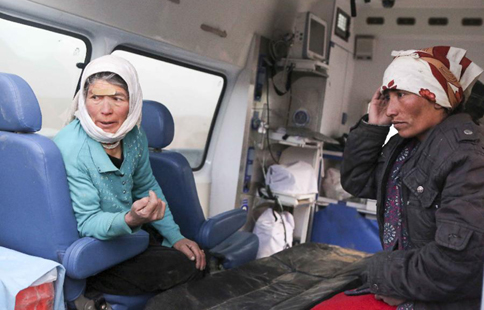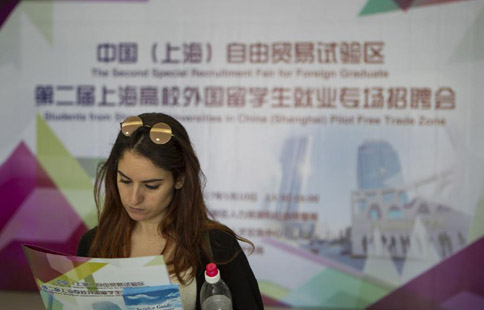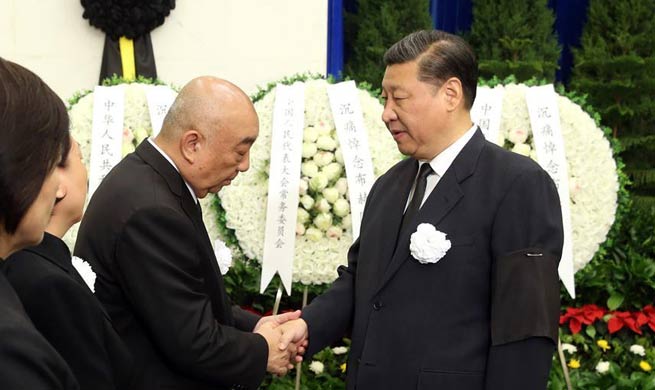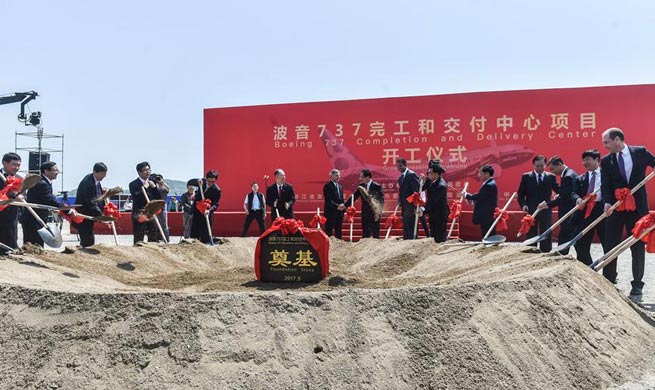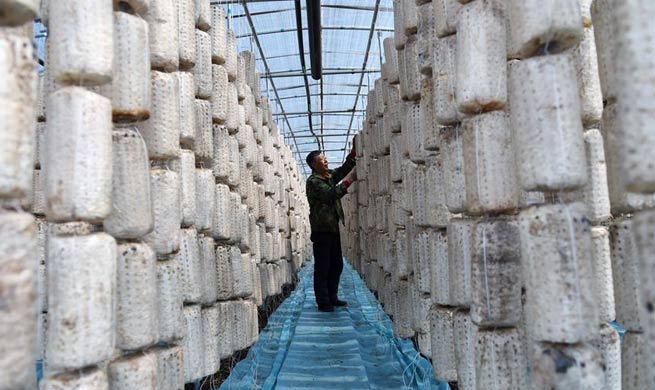ADEN, Yemen, May 11 (Xinhua) -- Former pro-secesssion governor of the southern port city of Aden Major General Aidarous Zubaidi announced in a televised speech on Thursday the formation of a transitional political council to govern the southern Yemeni provinces.
The announcement comes weeks after dismissing the UAE-backed governor of Aden along with the State Minister Hani Bin Buraik from their posts in a presidential decree issued by Yemen's President Abdu-Rabbu Mansour Hadi on April 27.
The decree issued by Hadi caused public anger and strong resentment among southern Yemenis and led to huge pro-independence demonstrations in Aden and neighboring provinces.
The pro-secesssion transitional council declared by Aden's ex-governor in Aden, consists of 26 southern members mainly governors, prominent secessionist figures and tribal leaders.
An aide close to Aidarous Zubaidi who is the President of the southern political council told Xinhua by phone saying that "more steps will come after today's declaration and the members will represent southern Yemen internally and externally."
The sacked State Minister who had strong links with the UAE, governor of oil-rich southeastern province of Hadramout and four other southern governors are members of the council that would govern the south.
Tens of thousands of southern people demonstrated last week in Aden and showed support for both sacked officials Al-Zubaidi and Bin-Buraik who are considered as key leading figures of the southern anti-unity movement.
The newly-declared council will continue in working with the Saudi-led coalition in fighting Iranian-backed Houthis and will establish strong partnership with the international community in fighting terrorism in the southern provinces.
The southern port city of Aden, has been the contemporary capital of Hadi's government since 2014, when the Shiite Houthi group invaded the capital Sanaa militarily and forced him to flee to Aden and then to Saudi Arabia.
Observers said that the announcement of forming a transitional council that is going to govern Yemen's south is a major blow to Hadi's Saudi-backed government.
According to the observers, the pro-secesssion council shows real risk of country's fracture and weakness of the internationally-recognized government.
Hadi, who is currently in the Saudi capital of Riyadh, will face difficulties returning to Aden with the city under the control of the southern separatist forces.
Yemen has been suffering from a civil war and a Saudi-led military intervention for around two years. The civil war began after the Houthi militants with support from forces loyal to former President Ali Abdullah Saleh ousted the UN-backed transitional government and occupied the capital Sanaa militarily in September 2014.
The legitimate government controls the south and some eastern parts, while the Houthi-Saleh alliance controls the remaining areas including the capital Sanaa.
The UN has sponsored peace talks between the warring factions several times, but they failed to reach common ground.
The civil war, ground battles and airstrikes have already killed more than 10,000 people, half of them civilians. Such conflicts also injured more than 35,000 others and displaced over 2 million, according to humanitarian agencies.








